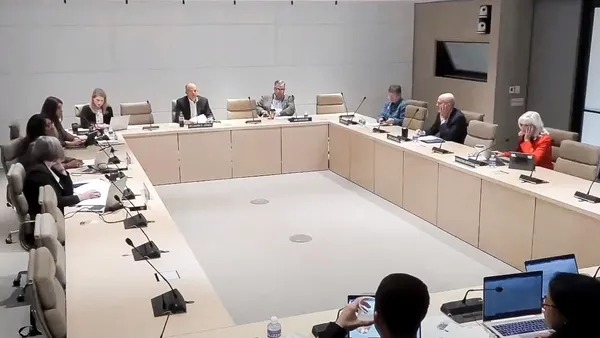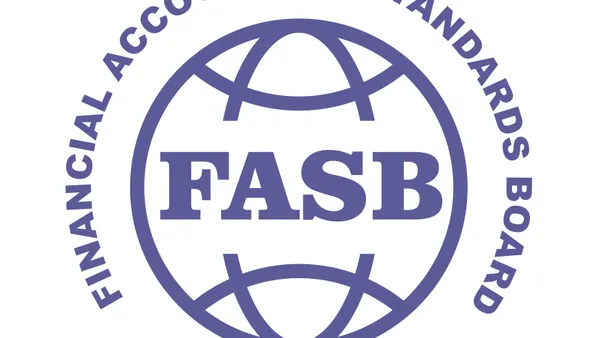Dive Brief:
-
Fundrise, a direct-to-investor real estate investment platform, tapped as its new CFO Alison Staloch, the former chief accountant of the Division of Investment Management at the Securities and Exchange Commission.
-
Washington, D.C.-based Fundrise manages $1.5 billion in equity for more than 150,000 investors. It has invested in more than $5.7 billion worth of real estate since its 2012 founding.
- Fundrise’s former CFO, Michael McCord, was fired for attempted extortion in 2016, a charge he has disputed.
Dive Insight:
Staloch’s hire follows news from earlier this month that Fundrise secured a $300 million credit facility from Goldman Sachs to finance new single-family rental home construction in the Sun Belt region.
At the SEC, Staloch developed policy recommendations for the regulation of investment companies and advisers with respect to their disclosure and financial reporting requirements. Prior to that, she spent a decade in the audit practice at KPMG.
“Having spent my entire career in investor protection roles within our capital markets, I am inspired by the Fundrise investor-centric mission to leverage technology to build a better financial system for individual investors,” Staloch said in a statement. “I am excited about working with the Fundrise team to continue to amplify the impacts of its uniquely powerful technology to streamline conventional capital raising and capital funding operations on behalf of its customers.”
“Alison’s background advocating for the individual investor at the highest levels was a perfect fit with our mission at Fundrise,” co-founder and CEO Ben Miller said.
Staloch was drawn to Fundrise as an opportunity to “do something more entrepreneurial,” she told CFO Dive. “I’ve spent my whole career in gatekeeping and regulation, so it was enticing to be part of building something.”
Staloch, who began in the role in late April, is the company’s first full-time CFO, and characterizes her workload as typical of a late-stage company. She’s focused on accounting and reporting, alongside more strategic work, like improving revenue models and managing diversity, equity and inclusion goals.
“The biggest thing I’m focused on right now is structuring the finance function to leverage technology in a way that allows it to automate controls and processes so the organization can focus more strategically,” she said.
Fundrise, she said, is very complex and heavily regulated, but “incredibly innovative with compliance.”
“That impressed me as a former regulator,” she said, adding she supports the company’s mission to democratize access to alternative assets for individual investors.
As for how Fundrise competes with public real estate investment trusts (REITs) and retains access to a broad base of investors, the company directly offers and services its products. “There’s really no middle man,” she said.
Fundrise's assets are externally managed; to extract efficiencies in operating costs, it focuses on building out its tech efficiencies to better scale.
“Our tech allows us to aggregate investor dollars through an online platform, which allows for incredible investments,” she said. “Our operations are all done in-house, and our tech provides us with real-time data and insights to more effectively deploy an investment strategy.”
While rising interest rates might impact the value of real estate, it doesn’t drive how Staloch approaches strategy, she said. “We’re looking for assets we believe can create value, and also where we see an opportunity to disrupt a current approach in a way that creates even more value for our investors,” she said.
Amid the well-documented uncertainty surrounding post-pandemic commercial real estate, Fundrise isn’t changing its plans.
“We’re currently investing, primarily, in multi-family and single-family rental properties: asset classes that aren’t facing that same uncertainty as commercial real estate,” Staloch said. “One of the benefits of investing is that our real estate assets are diversified; we’re not constrained by any asset class or geography. The single family rental is somewhat of a new vertical that we’ve been targeting, and we continue to constantly assess which asset classes have value and represent opportunities for disruption.”
Since McCord’s firing in 2016, Fundrise has been a Regulation A filer, filing regulation statements for all funds and actions, Staloch said, which is “really unique for a company at our stage.” Her own due diligence process has shown her the company has strong controls in place, and, as a former regulator, Fundrise’s compliance with heavy regulation has impressed her.













